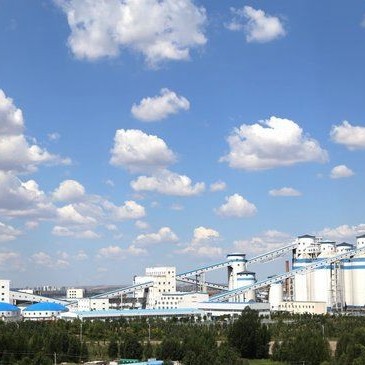
-
 Afrikaans
Afrikaans -
 Albanian
Albanian -
 Amharic
Amharic -
 Arabic
Arabic -
 Armenian
Armenian -
 Azerbaijani
Azerbaijani -
 Basque
Basque -
 Belarusian
Belarusian -
 Bengali
Bengali -
 Bosnian
Bosnian -
 Bulgarian
Bulgarian -
 Catalan
Catalan -
 Cebuano
Cebuano -
 China
China -
 China (Taiwan)
China (Taiwan) -
 Corsican
Corsican -
 Croatian
Croatian -
 Czech
Czech -
 Danish
Danish -
 Dutch
Dutch -
 English
English -
 Esperanto
Esperanto -
 Estonian
Estonian -
 Finnish
Finnish -
 French
French -
 Frisian
Frisian -
 Galician
Galician -
 Georgian
Georgian -
 German
German -
 Greek
Greek -
 Gujarati
Gujarati -
 Haitian Creole
Haitian Creole -
 hausa
hausa -
 hawaiian
hawaiian -
 Hebrew
Hebrew -
 Hindi
Hindi -
 Miao
Miao -
 Hungarian
Hungarian -
 Icelandic
Icelandic -
 igbo
igbo -
 Indonesian
Indonesian -
 irish
irish -
 Italian
Italian -
 Japanese
Japanese -
 Javanese
Javanese -
 Kannada
Kannada -
 kazakh
kazakh -
 Khmer
Khmer -
 Rwandese
Rwandese -
 Korean
Korean -
 Kurdish
Kurdish -
 Kyrgyz
Kyrgyz -
 Lao
Lao -
 Latin
Latin -
 Latvian
Latvian -
 Lithuanian
Lithuanian -
 Luxembourgish
Luxembourgish -
 Macedonian
Macedonian -
 Malgashi
Malgashi -
 Malay
Malay -
 Malayalam
Malayalam -
 Maltese
Maltese -
 Maori
Maori -
 Marathi
Marathi -
 Mongolian
Mongolian -
 Myanmar
Myanmar -
 Nepali
Nepali -
 Norwegian
Norwegian -
 Norwegian
Norwegian -
 Occitan
Occitan -
 Pashto
Pashto -
 Persian
Persian -
 Polish
Polish -
 Portuguese
Portuguese -
 Punjabi
Punjabi -
 Romanian
Romanian -
 Russian
Russian -
 Samoan
Samoan -
 Scottish Gaelic
Scottish Gaelic -
 Serbian
Serbian -
 Sesotho
Sesotho -
 Shona
Shona -
 Sindhi
Sindhi -
 Sinhala
Sinhala -
 Slovak
Slovak -
 Slovenian
Slovenian -
 Somali
Somali -
 Spanish
Spanish -
 Sundanese
Sundanese -
 Swahili
Swahili -
 Swedish
Swedish -
 Tagalog
Tagalog -
 Tajik
Tajik -
 Tamil
Tamil -
 Tatar
Tatar -
 Telugu
Telugu -
 Thai
Thai -
 Turkish
Turkish -
 Turkmen
Turkmen -
 Ukrainian
Ukrainian -
 Urdu
Urdu -
 Uighur
Uighur -
 Uzbek
Uzbek -
 Vietnamese
Vietnamese -
 Welsh
Welsh -
 Bantu
Bantu -
 Yiddish
Yiddish -
 Yoruba
Yoruba -
 Zulu
Zulu
fiberglass chemical product
The Role of Fiberglass Chemical Products in Modern Industry
Fiberglass, a composite material made from a plastic matrix reinforced by fine glass fibers, has transformed various industries with its unique properties and versatility. At the core of fiberglass is its chemical composition, which plays a crucial role in determining its performance, durability, and applications. This article explores the importance of fiberglass chemical products in enhancing industrial capabilities.
Fiberglass chemical products are primarily composed of resins and hardeners, which are essential in creating a robust composite. The most commonly used resin is polyester, characterized by its excellent mechanical properties and resistance to corrosion. Polyester resins are often used in applications ranging from boat hulls to automotive components. Epoxy resins, known for their superior adhesion and strength, are widely utilized in aerospace and high-performance applications. These chemical products not only provide structural integrity but also enhance the longevity of the final product by protecting it from environmental factors such as moisture and UV exposure.
One of the prominent advantages of fiberglass is its lightweight nature. Compared to metals, fiberglass provides a significant weight reduction, translating into enhanced fuel efficiency in transportation applications. As industries move towards more sustainable practices, the lightweight characteristics of fiberglass have become increasingly appealing. By employing fiberglass in the manufacturing of vehicles and aircraft, companies can achieve better fuel economy while maintaining safety standards.
fiberglass chemical product

Moreover, fiberglass chemical products offer excellent thermal and electrical insulation properties, making them ideal for a wide range of applications. In the electronics industry, fiberglass is utilized in the production of circuit boards, where it serves as a substrate due to its superb insulating features. These properties also extend to construction, where fiberglass insulation materials are used to improve energy efficiency in buildings, reducing heating and cooling costs.
Another important aspect of fiberglass chemical products is their adaptability. The ability to mold fiberglass into intricate shapes allows for innovation across various sectors. From sporting goods to architectural elements, fiberglass can be tailored to meet specific design requirements and aesthetic preferences. This versatility has enabled designers and engineers to explore new possibilities, thereby driving industry growth.
The environmental impact of fiberglass manufacturing is also a topic of discussion. While fiberglass is not biodegradable, advancements in chemical formulations are leading to more sustainable production methods and end-of-life solutions. Researchers are exploring ways to recycle fiberglass, turning it into new products and minimizing waste. The industry is gradually shifting towards eco-friendly practices, aiming to reduce its carbon footprint while maintaining performance standards.
In conclusion, fiberglass chemical products are integral to modern industrial processes, offering a unique blend of properties that enhance performance, efficiency, and design flexibility. As industries continue to innovate, the role of fiberglass is likely to expand, paving the way for more sustainable and advanced applications. The ongoing development of advanced fiberglass chemical formulations promises a bright future for this remarkable material in an ever-evolving world.









